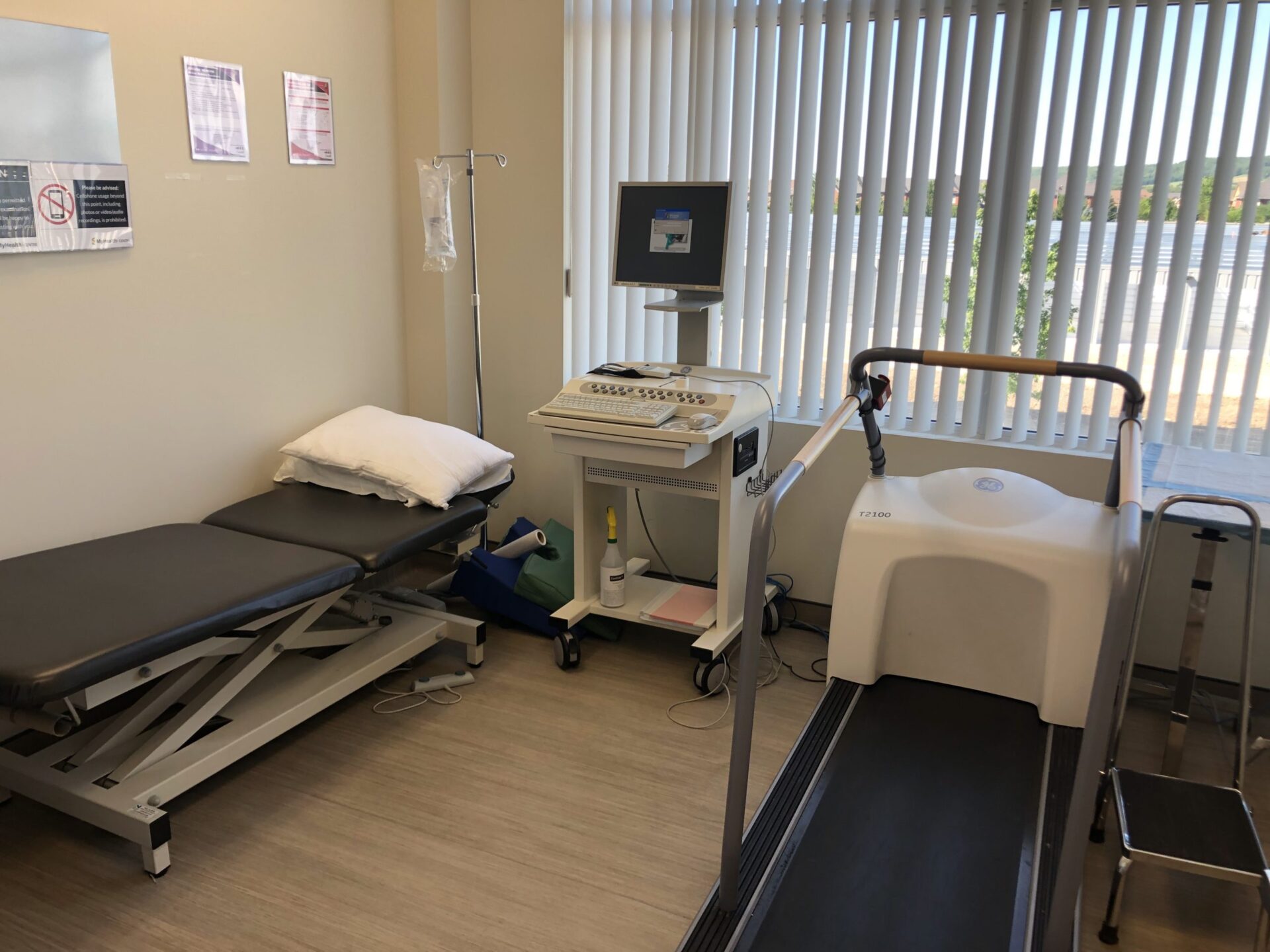An exercise stress test shows how your heart works during physical activity. Because exercise makes your heart pump harder and faster, an exercise stress test can reveal problems with blood flow within your heart.
This test usually monitors your heart rhythm, blood pressure and breathing while you walk on a treadmill. If you have difficulties with a physical activity, you may receive a drug that mimics the effects of exercise.
Your healthcare professional may recommend a stress test to:
- Diagnose coronary artery disease: Your coronary arteries are the major blood vessels that supply your heart with blood, oxygen and nutrients. Coronary artery disease develops when these arteries become damaged or diseased – usually due to a buildup of deposits containing cholesterol and other substances (plaques).
- Diagnose heart rhythm problems (arrhythmias): Heart arrhythmias occur when the electrical impulses that coordinate your heart rhythm don’t function properly, causing your heart to beat too fast, too slowly or irregularly.
- Guide treatment of heart disorders: If you’ve already been diagnosed with a heart condition, an exercise stress test can help your doctor find out how well treatment is working. It may also be used to help establish the treatment plan for you by showing how much exercise your heart can handle.
Your doctor may use a stress test to help determine the timing of cardiac surgery, such as valve replacement. For some people with heart failure, the results of a stress test may help the doctor determine whether you need a heart transplant or other advanced therapies.
BEFORE THE TEST
- Wear comfortable clothes and walking shoes.
- You may be asked not to eat, drink or smoke for a period of time before a stress test. You may need to avoid caffeine the day before and the day of the test.
- Ask your healthcare professional if it’s safe to continue taking prescription and over-the-counter medications because they might interfere with certain stress tests.
- If you use an inhaler for asthma or other breathing problems, bring it with you to the test.
DURING THE TEST
First, your doctor will ask you some questions about your medical history and how often and strenuously you exercise. This helps determine the amount of exercise that’s appropriate for you during the test. Your doctor will also listen to your heart and lungs for any abnormalities that might affect your test results.
A nurse or technician will place sticky patches (electrodes) on your chest, legs and arms. Some areas may need to be shaved to help them stick. The electrodes have wires connected to an electrocardiogram machine, which records the electrical signals that trigger your heartbeats. A cuff on your arm checks your blood pressure during the test. You may be asked to breathe into a tube during the test to show how well you’re able to breathe during exercise.
You’ll then begin walking slowly on a treadmill. As the test progresses, the exercise gets more difficult until your heart rate has reached a set target, or until you develop symptoms that don’t allow you to continue. These signs and symptoms may include:
- Moderate to severe chest pain
- Severe shortness of breath
- Abnormally high or low blood pressure
- An abnormal heart rhythm
- Dizziness
- Fatigue
- Certain changes in your electrocardiogram
You and your healthcare professional will discuss your safe limits for exercise. You may stop the test anytime you’re too uncomfortable to continue exercising.
AFTER THE TEST
After you stop exercising, you may be asked to stand still for several seconds and then lie down for a period of time with the monitors in place. Your healthcare professional can watch for any abnormalities as your heart rate and breathing return to normal.
When your exercise stress test is complete, you may return to your normal activities unless your doctor tells you otherwise.
Source: Mayoclinic.org
Locations
- Brampton Centre
- Brantford
- Lindsay
- London Arva
- London Wharncliffe Cardiology
- Milton Cardiology
- Mississauga Cardiology
- Newmarket Cardiology
- North York
- Orangeville
- Scarborough
- Simcoe
- Sudbury Larch Cardiology
- Toronto Davisville
- Toronto King
Google Reviews
Super attentive, patient and very knowledgeable.
– ERIC Z.

